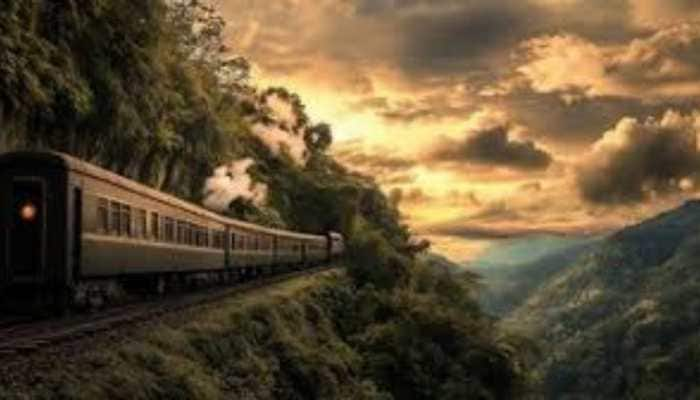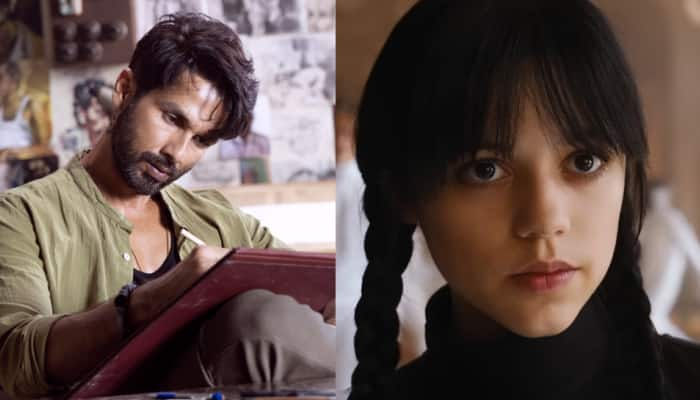‘China to carefully monitor Obama’s Australia visit’
US President Barack Obama has delayed his visit to Australia to June, but the significance attached to his trip to the Asia-Pacific country would be as noteworthy as ever.
Trending Photos
)
 US President Barack Obama has delayed his visit to Australia to June, but the significance attached to his trip to the Asia-Pacific country would be as noteworthy as ever.
Obama was originally scheduled to visit Australia on March 25. An address to a special joint sitting of the Australian Parliament and bilateral talks with Prime Minister Kevin Rudd were on the US leader’s agenda.
Whether it is security, economy, environment, or energy, the US finds Australia an important ally in almost all the sectors.
In an exclusive interview with Kamna Arora of Zeenews.com, Pankaj Kumar Jha, a strategic analyst, discusses the objective of Obama’s trip to Australia, and the ties shared by Washington and Canberra.
Pankaj Kumar Jha is Associate Fellow at Institute for Defence Studies and Analyses, New Delhi.
Kamna: What is the objective of Barack Obama’s Australia trip?
Jha: Barack Obama’s visit to Australia is aimed at marking and strengthening the partnership between the two countries as long-term allies. In Australia, Obama might have to answer a few uncomfortable questions about the deployment of Australian troops in Afghanistan and evolving US policy under his presidency. This trip is also aimed at gaining mass support for Obama’s initiative on climate change and global warming.
Obama might also like to rephrase his understanding with regard to China and might share a few tips with the Mandarin-speaking Kevin Rudd. Issues relating to NPT (Nuclear Non-Proliferation Treaty) and CTBT (Comprehensive Test Ban Treaty) might also be discussed at length, especially when NPT Quinquennial Review Conference (RevCon, which takes place after five years) is due this year in May. It is highly likely that Obama might discuss issues like the forthcoming G-20 Summit in South Korea, climate change, nuclear non-proliferation issues at length and would cajole Canberra to play a significant role in regional security.
Kamna: How significant are the ties of the US and Australia in changing the geopolitical situation?
Jha: The US and Australia have been allies under the ANZUS treaty and have been involved in supporting each other during times of crisis like terror-related incidents. Due to this treaty obligation, Australian troops, though in a very small number, have been involved in Afghanistan. Also, the US has not abandoned its view about the ‘1,000-ship Navy’ and is also pushing the ‘Concert of Democracies’ agenda, which was superficially addressed in 2007 during the ARF (ASEAN Regional Forum) Summit.
Obama, at this juncture, might not like to jeopardise US’ relations with China by reiterating these concepts. The bilateral relations are already under severe strain due to the US president’s meeting with the Dalai Lama and supply of arms to Taiwan. Obama would rather like to engage Australia in regional security matters, especially with regard to South Asia and Southeast Asia.
Kamna: What all can be discussed between Australian Prime Minister Kevin Rudd and Obama?
Jha: There would be a few important issues that would be discussed between the two leaders. Firstly, Obama might underline compulsions for sending extra 30,000 troops to Afghanistan and might exhort Australia to take leadership role in the troubled Asian country. Secondly, he might highlight the tipping point or timeline for the US’ exit strategy from Afghanistan and Iraq. Thirdly, he might discuss the security of the sea-lanes, in particular the Gulf of Aden and the Malacca Straits, especially when Singapore has warned of impending attack on ships by terrorist groups in the Malacca straits. Fourthly, APEC is seen as an exhausted organisation, so Obama might discuss modalities to reformat and revitalise the organisation, especially in the wake of the ongoing recession. Finally, the emergence of China would be a major issue, which would be discussed at length between the two leaders.
The Defence White paper of Australia released in 2009 addresses the issue of radicalism in Indonesia as well as military rise of China. And so, Obama would like to discuss the two issues with Kevin Rudd. The interesting part is that the recently-concluded trip of (Indonesian President) Sushilo Bambang Yudhoyono to Australia shows that the two US partners (Australia and Indonesia) are going to be crucial in Obama’s strategy towards Asia-Pacific at large. This would also mark the conclusion of the US President’s trip to Asia-Pacific countries, of course barring India, which till date has not got very positive feelers from the US administration about his visit.
Kamna: Can a military alliance of any sort between the US and Australia worry China?
Jha: The US and Australia already have a binding ANZUS treaty, so there is no need for any other alliance. But, it would be interesting to note the new negotiations with regard to transfer of technology or supply of advanced military equipment to Australia.
Australia has shown willingness to buy 100 F-35 fighters once it reaches the commercial production stage. Australia might get preference equivalent to that of Turkey and Israel. China might be carefully monitoring the forthcoming visit due to three factors. Firstly, the US’ position with regard to ‘Concert of Democracies’ as proposed in 2007 and the US’ response to Rudd’s proposal of Asia-Pacific Community comprising major powers in the Asia-Pacific. Secondly, the visit is coming after Obama’s meeting with the Dalai Lama and so the usual Chinese apprehensions. Thirdly, the US’ offer to Australia in terms of trade and investment.
US President Barack Obama has delayed his visit to Australia to June, but the significance attached to his trip to the Asia-Pacific country would be as noteworthy as ever.
Obama was originally scheduled to visit Australia on March 25. An address to a special joint sitting of the Australian Parliament and bilateral talks with Prime Minister Kevin Rudd were on the US leader’s agenda.
Whether it is security, economy, environment, or energy, the US finds Australia an important ally in almost all the sectors.
In an exclusive interview with Kamna Arora of Zeenews.com, Pankaj Kumar Jha, a strategic analyst, discusses the objective of Obama’s trip to Australia, and the ties shared by Washington and Canberra.
Pankaj Kumar Jha is Associate Fellow at Institute for Defence Studies and Analyses, New Delhi.
Kamna: What is the objective of Barack Obama’s Australia trip?
Jha: Barack Obama’s visit to Australia is aimed at marking and strengthening the partnership between the two countries as long-term allies. In Australia, Obama might have to answer a few uncomfortable questions about the deployment of Australian troops in Afghanistan and evolving US policy under his presidency. This trip is also aimed at gaining mass support for Obama’s initiative on climate change and global warming.
Obama might also like to rephrase his understanding with regard to China and might share a few tips with the Mandarin-speaking Kevin Rudd. Issues relating to NPT (Nuclear Non-Proliferation Treaty) and CTBT (Comprehensive Test Ban Treaty) might also be discussed at length, especially when NPT Quinquennial Review Conference (RevCon, which takes place after five years) is due this year in May. It is highly likely that Obama might discuss issues like the forthcoming G-20 Summit in South Korea, climate change, nuclear non-proliferation issues at length and would cajole Canberra to play a significant role in regional security.
Kamna: How significant are the ties of the US and Australia in changing the geopolitical situation?
Jha: The US and Australia have been allies under the ANZUS treaty and have been involved in supporting each other during times of crisis like terror-related incidents. Due to this treaty obligation, Australian troops, though in a very small number, have been involved in Afghanistan. Also, the US has not abandoned its view about the ‘1,000-ship Navy’ and is also pushing the ‘Concert of Democracies’ agenda, which was superficially addressed in 2007 during the ARF (ASEAN Regional Forum) Summit.
Obama, at this juncture, might not like to jeopardise US’ relations with China by reiterating these concepts. The bilateral relations are already under severe strain due to the US president’s meeting with the Dalai Lama and supply of arms to Taiwan. Obama would rather like to engage Australia in regional security matters, especially with regard to South Asia and Southeast Asia.
Kamna: What all can be discussed between Australian Prime Minister Kevin Rudd and Obama?
Jha: There would be a few important issues that would be discussed between the two leaders. Firstly, Obama might underline compulsions for sending extra 30,000 troops to Afghanistan and might exhort Australia to take leadership role in the troubled Asian country. Secondly, he might highlight the tipping point or timeline for the US’ exit strategy from Afghanistan and Iraq. Thirdly, he might discuss the security of the sea-lanes, in particular the Gulf of Aden and the Malacca Straits, especially when Singapore has warned of impending attack on ships by terrorist groups in the Malacca straits. Fourthly, APEC is seen as an exhausted organisation, so Obama might discuss modalities to reformat and revitalise the organisation, especially in the wake of the ongoing recession. Finally, the emergence of China would be a major issue, which would be discussed at length between the two leaders.
The Defence White paper of Australia released in 2009 addresses the issue of radicalism in Indonesia as well as military rise of China. And so, Obama would like to discuss the two issues with Kevin Rudd. The interesting part is that the recently-concluded trip of (Indonesian President) Sushilo Bambang Yudhoyono to Australia shows that the two US partners (Australia and Indonesia) are going to be crucial in Obama’s strategy towards Asia-Pacific at large. This would also mark the conclusion of the US President’s trip to Asia-Pacific countries, of course barring India, which till date has not got very positive feelers from the US administration about his visit.
Kamna: Can a military alliance of any sort between the US and Australia worry China?
Jha: The US and Australia already have a binding ANZUS treaty, so there is no need for any other alliance. But, it would be interesting to note the new negotiations with regard to transfer of technology or supply of advanced military equipment to Australia.
Australia has shown willingness to buy 100 F-35 fighters once it reaches the commercial production stage. Australia might get preference equivalent to that of Turkey and Israel. China might be carefully monitoring the forthcoming visit due to three factors. Firstly, the US’ position with regard to ‘Concert of Democracies’ as proposed in 2007 and the US’ response to Rudd’s proposal of Asia-Pacific Community comprising major powers in the Asia-Pacific. Secondly, the visit is coming after Obama’s meeting with the Dalai Lama and so the usual Chinese apprehensions. Thirdly, the US’ offer to Australia in terms of trade and investment.
Stay informed on all the latest news, real-time breaking news updates, and follow all the important headlines in india news and world News on Zee News.
Advertisement
Live Tv
Advertisement







)
)
)
)
)
)
)
)
)
)

